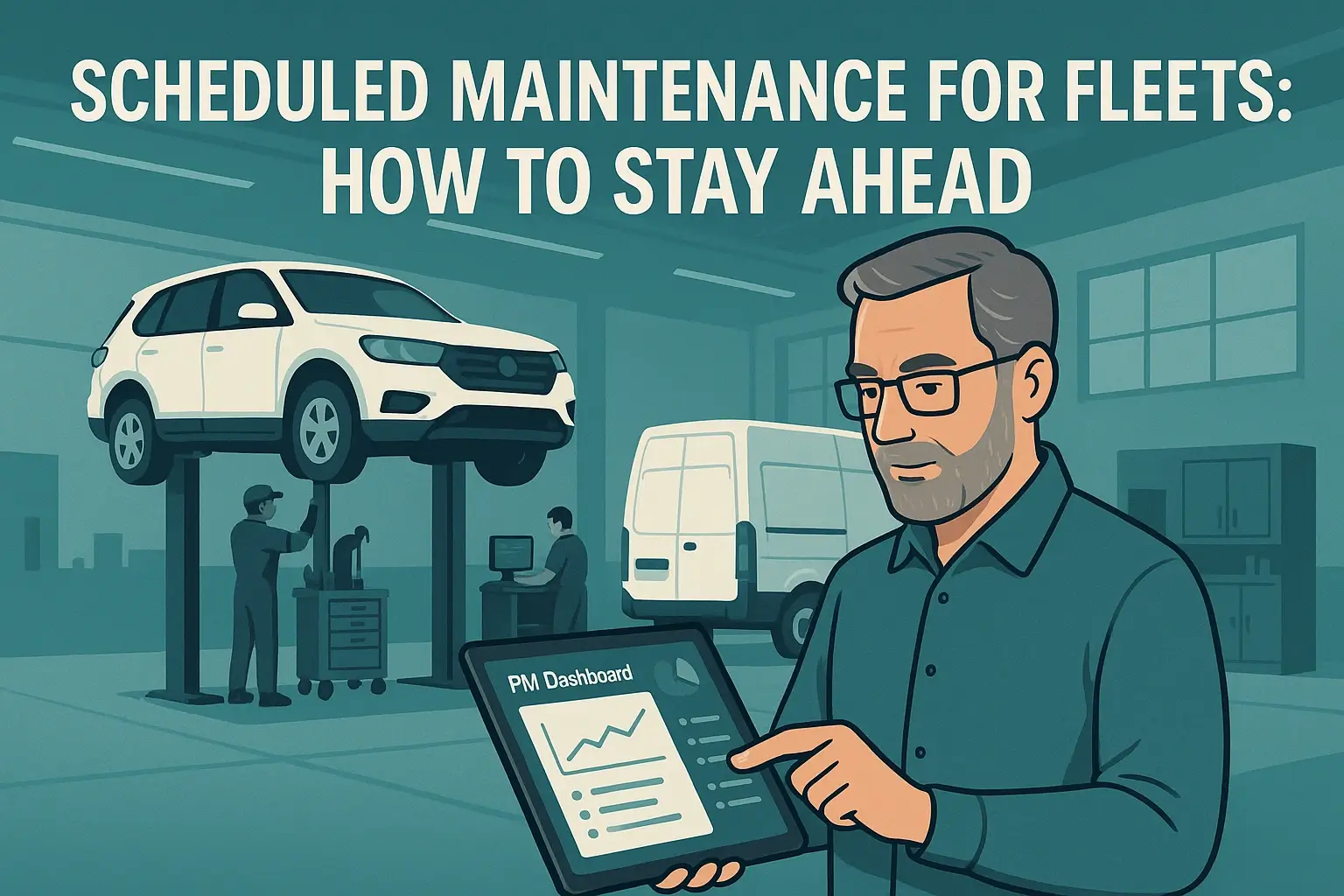Key Takeaways
Managing a fleet of vehicles in the construction industry is no small task. Construction vehicles, ranging from bulldozers to excavators to dump trucks, are the backbone of any project. They perform heavy-duty tasks, often in harsh environments, which makes their maintenance not just important but essential for the smooth operation of the entire business. A well-maintained fleet ensures that projects stay on schedule, costs are controlled, and safety is never compromised.
In this article, we’ll explore how to create tailored fleet maintenance strategies specifically designed for the unique demands of the construction industry.
The Importance of Fleet Maintenance in Construction
The construction industry relies heavily on its vehicles and equipment to complete projects efficiently. These vehicles often operate in tough conditions, such as extreme weather, rough terrains, and constant heavy lifting. All of these factors contribute to faster wear and tear, making regular maintenance crucial.
Without a solid maintenance strategy, construction companies risk facing unexpected breakdowns, costly repairs, and project delays. A broken-down excavator on a job site can halt work for days, leading to increased labor costs and missed deadlines.
Additionally, poorly maintained vehicles can lead to safety hazards, putting workers at risk of accidents.
What Makes Fleet Maintenance in Construction Different?
Fleet maintenance in the construction industry differs from other industries because of the unique nature of the vehicles and their operating conditions. Here are a few factors that set it apart:
- Heavy-Duty Equipment: Construction vehicles are designed to handle heavy loads and tough tasks. This means they require more strong maintenance schedules compared to standard commercial vehicles.
- Harsh Operating Conditions: Construction sites are often muddy, dusty, or located in remote areas. Vehicles are exposed to elements that can accelerate wear and tear, requiring more frequent inspections and maintenance.
- Varied Vehicle Types: A construction fleet is diverse, including everything from small pickup trucks to large cranes. Each type of vehicle has its own maintenance needs, making it essential to have a tailored strategy for each.
- Regulatory Compliance: Construction vehicles must comply with various safety and environmental regulations. Regular maintenance helps ensure that vehicles meet these standards, avoiding costly fines and legal issues.
Key Components of a Tailored Fleet Maintenance Strategy
A one-size-fits-all approach doesn’t work when it comes to maintaining construction vehicles. Here’s how to build a tailored strategy that addresses the specific needs of your fleet.
Preventative Maintenance Program
Preventative maintenance is all about catching problems before they become serious. This involves scheduling regular inspections, servicing, and part replacements based on the vehicle’s usage and operating conditions.
For construction vehicles, this might mean more frequent checks of the hydraulic systems, engines, and tires, which are often under constant strain. Regular oil changes, filter replacements, and brake inspections should be part of this program.
Customized Maintenance Schedules
Not all vehicles in your fleet will need the same maintenance at the same intervals. For example, an excavator that’s used daily will require more frequent maintenance than a truck that’s only used occasionally. Create customized schedules based on the specific usage patterns of each vehicle type.
Use data from telematics systems, which track vehicle usage, to inform your maintenance schedules. This data can help you identify which vehicles are being used the most and may need attention sooner.
Download Your Free Fleet Maintenance Checklist
Daily Inspections
Daily inspections are a critical part of any fleet maintenance strategy, especially in the construction industry. These inspections should be quick but thorough, covering essential components like tires, lights, fluid levels, and brakes.
Drivers and operators should be trained to perform these inspections before and after using the vehicle. Any issues spotted during these checks should be reported immediately so they can be addressed before they turn into bigger problems. Implementing a simple checklist for daily inspections can ensure consistency and help catch issues early.
Record Keeping and Documentation
Keeping detailed records of all maintenance activities is crucial. This includes logs of inspections, repairs, part replacements, and any other maintenance-related actions. Good record-keeping helps you track the health of your fleet, identify recurring issues, and ensure that you’re staying on top of your maintenance schedule.
Digital fleet management systems can simplify this process by automating record-keeping and providing easy access to maintenance histories for each vehicle. These systems can also generate reminders for upcoming maintenance tasks, ensuring nothing falls through the cracks.
Training and Communication
A tailored maintenance strategy is only as good as the team that implements it. Training your drivers and operators on the importance of maintenance and how to perform daily inspections is essential. They are your first line of defense in identifying potential issues.
Communication is also key. Ensure there’s a clear process for reporting vehicle problems and that everyone knows who is responsible for taking action. A well-informed team will help keep your vehicles in top condition and reduce the likelihood of costly repairs.
Using the Right Tools and Technology
Modern technology can play a significant role not only in fleet maintenance but also in managing construction equipment efficiently. Telematics systems, for example, provide real-time data on vehicle performance, helping you monitor the health of your fleet more effectively. Fleet management software can also help you keep track of maintenance schedules, record-keeping, and compliance with regulatory requirements.
Investing in the right tools and technology can make your maintenance strategy more efficient, reduce downtime, and ultimately save your business money.
Adapting to Changing Conditions
The construction industry is dynamic, with project locations, vehicle usage, and environmental conditions constantly changing. Your fleet maintenance strategy should be flexible enough to adapt to these changes.
For example, if a project moves to a location with rougher terrain, you may need to increase the frequency of inspections and servicing for vehicles operating there. Similarly, if you’re using certain vehicles more intensively during a particular phase of a project, adjust their maintenance schedules accordingly.
Regularly review and update your maintenance strategy to reflect the current needs of your fleet. This proactive approach will help ensure that your vehicles remain reliable and ready for the demands of your projects.
Related Posts
- Unveiling 2024's Construction Industry Trends: What You Haven't Heard Yet
- Top 3 reasons to choose fleet management software for a construction business
- The Ultimate Guide to Managing a Large Construction Fleet
Optimize Your Fleet Maintenance with Simply Fleet
A tailored fleet maintenance strategy is important for keeping construction vehicles in top condition. By focusing on preventative maintenance, customizing schedules, conducting daily inspections, and utilizing the right tools and technology, you can minimize downtime, reduce repair costs, and keep your projects on track.
The key to a successful maintenance strategy is flexibility. Regularly assess your fleet’s needs and adjust your approach as necessary. With the right strategy in place, your construction vehicles will be well-equipped to handle the challenges of any job site, ensuring that your business runs smoothly and efficiently.
Simply Fleet's Fleet Maintenance software is your all-in-one solution. With our easy-to-use platform, you can automate maintenance schedules, track repairs, and ensure compliance with just a few clicks.
Say goodbye to unexpected breakdowns and costly repairs—our fleet maintenance solution helps you stay ahead of issues before they become problems. Whether you manage a small fleet or a large one, Simply Fleet makes maintenance simple, efficient, and cost-effective. Get started today and keep your fleet running smoothly!



.png)








.png)


.png)






